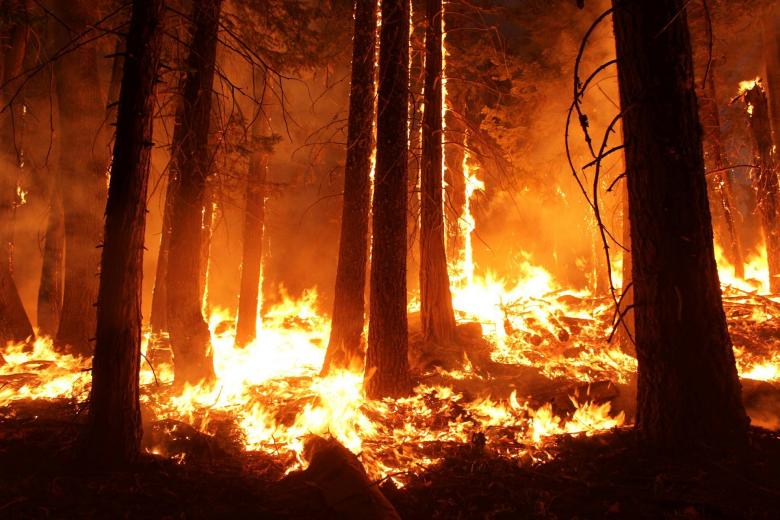Madrid Wildfires: Spain & Portugal Battle Heatwave Flames
By Asmita - Aug 12, 2025
Wildfires in Spain and Portugal worsen amid heatwave, forcing evacuations and claiming lives. Severe drought and high temperatures fuel blaze, prompting calls for better forest management and prevention strategies. Portugal battles multiple large wildfires, with significant environmental damage in UNESCO-recognized natural park. Smoke from fires spreads over 400 kilometers to Madrid. Both countries face challenges in firefighting and health impact management as intense heat persists.

Wildfire via Stock Vault
Flames have been reported near ,[object Object], as wildfires continue to burn across Spain and ,[object Object], amid a severe heatwave affecting the region. In the ,Madrid, municipality of ,[object Object],, firefighters battled a rapidly spreading blaze that forced the evacuation of hundreds of residents. The fire advanced about six kilometers within 40 minutes, driven by strong winds reaching up to 70 km/h and extreme temperatures that are forecasted to reach as high as 44°C (111°F). Tragically, a man suffered fatal burns, marking the first death linked to the wildfires in Spain this season. Authorities managed to bring the blaze under control after intense firefighting efforts overnight, but the impact on local communities remains severe.
,Portugal, is simultaneously combating three major wildfires in various regions including the village of Freches in the district of Trancoso and the municipality of Covilhã. More than 650 firefighters with helicopters and vehicles were deployed to contain these fires, which have threatened several villages and caused multiple injuries including among firefighters. One blaze alone destroyed around 24,000 hectares of forest, including ecologically significant areas in a ,[object Object],-recognized natural park. The Portuguese Interior Minister has pledged an evaluation of structural and operational responses once the fires are fully extinguished. The country faces an ongoing heatwave with many districts on high alert for fire risk, as this wildfire season has already burned significantly more land compared to previous years.
The wildfires in both countries are being exacerbated by exceptional drought conditions and a prolonged heatwave, creating ideal circumstances for fires to ignite and spread rapidly. Scientific assessments indicate that the underlying causes include a combination of extreme heat, dryness of vegetation fuel, and strong winds, which together create highly volatile conditions. Both short-term weather patterns and long-term climate factors contribute to the severity of these wildfires. In response, there is a growing call for forest management strategies to reduce flammable vegetation and foster more fire-resilient landscapes, shifting focus from fire suppression to prevention and controlled fuel management.
The impact of these fires extends beyond immediate damage to property and human safety. Smoke from massive wildfires in ,Portugal, has even been detected over 400 kilometers away in ,Madrid,, indicating the extensive spread of airborne pollutants. The scale of burned areas in Spain and ,Portugal, has been among the highest recorded in recent years, making 2025 one of the most intense wildfire seasons on record for the Iberian Peninsula. Authorities continue to face challenges in firefighting efforts, evacuation logistics, and addressing the health consequences of smoke exposure while preparing for continued extreme heat in the coming days.


